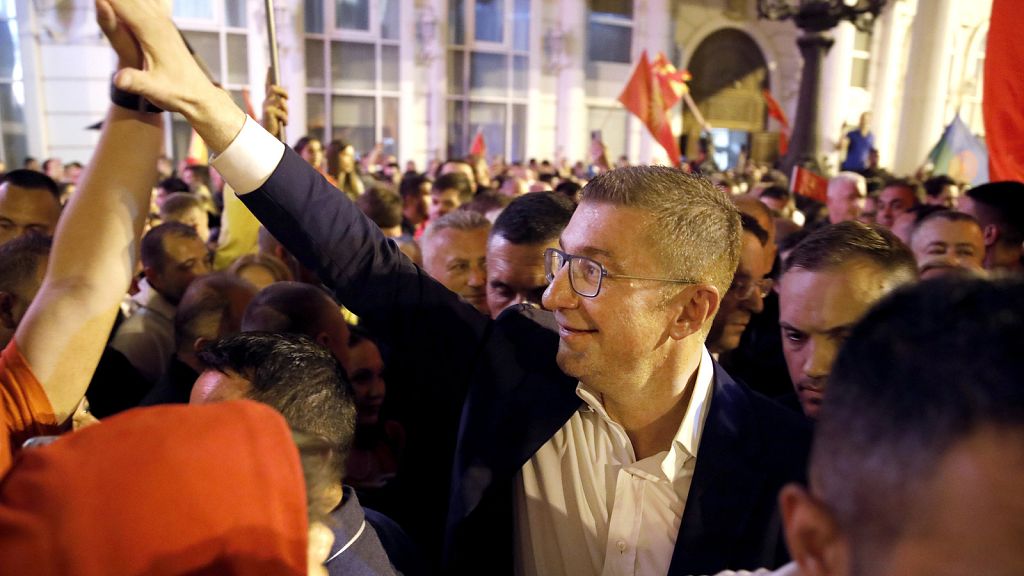Handshake between Hristijan Mickoski, left, and European Commission President Ursula von der Leyen – Xavier Lejeune/(c) Xavier Lejeune
The cash-for-reforms model is part of Brussels’ plan to accelerate reforms on a raft of issues including the rule of law, the independence of the judiciary and the fight against corruption. The reform agendas are expected to be endorsed as early as October, meaning the first “pre-financing” payments could be disbursed by the end of this year.
All countries – with the exception of Bosnia and Herzegovina – have to date submitted their draft reform agendas, as officials in Sarajevo are still deciding how the country’s parliamentary assembly should endorse the plans.
“If a country doesn’t meet its commitment under their reform agendas, the money allocated to it could be transferred to another country in the Western Balkans, creating an element of competition completely new compared to previous financing instruments,” an EU official explained.
Another EU official, speaking on condition of anonymity, added that tackling corruption was one of the biggest challenges in North Macedonia and other candidate countries in the region, but that the EU executive had robust mechanisms to safeguard its funding.
“Corruption is present. But we have a policy of zero tolerance for corruption and very strict frameworks in place,” the EU official said, “If it happens, and it does, our mechanisms kick in.”
Member states wield veto power
But even if Skopje successfully meets all its targets and reaps the benefits of the Growth Plan, it can only progress on its path to EU membership if it continues to mend the relationship with neighbouring Bulgaria.
That will prove challenging as lawmakers in Sofia and Skopje continue to exchange combative rhetoric.
Each member state must give its explicit green light to the opening of each step in the EU accession process.
Responding to EU ambassadors’ failure to move on accession talks with North Macedonia, former Bulgarian premier Boyko Borissov – who leads the biggest party in the Bulgarian parliament and chairs its foreign affairs committee – said Skopje had to “face the consequences of its actions,” accusing Mickoski’s government of blaming Bulgaria for delays in its membership bid.
Borissov recently called for the resignation of North Macedonia’s deputy prime minister and transport minister after a war of words involving the Corridor 8 route linking the country’s capitals.
Bulgaria will vote in its seventh election in just three years on October 27, following multiple failures to form a government.
Source link : http://www.bing.com/news/apiclick.aspx?ref=FexRss&aid=&tid=66fa912a1971473a802037db49481007&url=https%3A%2F%2Fwww.yahoo.com%2Fnews%2Fwhy-renewed-tensions-neighbours-stalled-091256386.html&c=15895447171250409477&mkt=en-us
Author :
Publish date : 2024-09-30 03:00:00
Copyright for syndicated content belongs to the linked Source.
